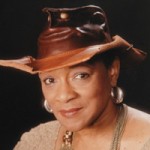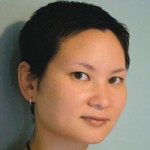
Written by Sara Judson Brown
[dropcap]A[/dropcap]nytime you get people together to party in the name of books, it’s a good thing.”
That’s how local author Jennifer Wilson views Des Moines’ new literary festival, set to debut this fall.
“It’s a rich and wise city that sets aside a few days to give props to books for the radical things they are and celebrate the people who read them and write them,” adds Wilson, author of the award-winning memoir “Running Away to Home” (St. Martin’s Press, 2011). “Books are the great equalizer, the cheapest education you’ll find, tiny things that hold whole worlds.”
Plenty of people would agree. Just ask Glenn Lyons, president of the Downtown Community Alliance (DCA), and Greg Heid, director of the he Des Moines Public Library. The two organizations are partnering to present WOW! Wonder of Words Festival Oct. 22-28 at downtown venues. More than a book festival, WOW will showcase the written word, with events for readers, writers and publishers.
“Reading and words are usually a solitary or individual thing,” Heid says. “This event says there are other individuals out there and we are all celebrating reading.”
The idea for the festival grew from conversations between Lyons and a DCA board member. Prior to moving to Des Moines, Lyons lived in Tucson, Ariz., and was familiar with the Tucson Festival of Books, now in its fourth year. Lyons became convinced a literary festival in downtown Des Moines had potential, having already seen the success of the Des Moines Arts Festival and the Downtown Farmers Market.
Organizers decided WOW, to be different from other book festivals, would be a multimedia event including other art forms that involve the written word, such as music and theater. “We are taking a more intellectual pursuit and putting it in a farmers market format,” Lyons says.
Activities are being designed to appeal to every age group and a broad range of interests. Highlights include an Iowa Authors Fair, featuring 50 to 75 Iowa writers; a Pub(lishers) Crawl with author events at The Library Cafe, El Bait Shop, Sbrocco and the Royal Mile; and a theatrical work written by Iowa author Mary Kay Shanley. The dramatic performance, commissioned by the festival, will tell the story of Iowan Kate Shelley, who in 1881 warned an oncoming passenger train that the bridge over Honey Creek had been washed away by flooding. The festival also will spotlight another prominent Iowan—the former Des Moines Register Pulitzer-Prize-winning editorial cartoonist and well-known conservationist, J.N. “Ding” Darling—with the premiere of the documentary “America’s Darling: J.N. ‘Ding’ Darling.”
Several community groups have joined under the WOW banner with performances or activities of their own. For example, the Des Moines Community Playhouse will perform “Wiley and the Hairy Man,” a play based on a book about an African-American tale.
To close the festival, organizers are planning a major event with a nationally recognized author. At press time, they weren’t releasing details but said the author is a popular writer with many best sellers, some of which have been made into movies.
Local authors say they’re excited about what the festival means for the capital city. An event like WOW “is an important opportunity for Des Moines to support literacy, language use and learning the way it has supported the sports, the arts, and other cultural events,” says Jody Swilky, chair of the English department at Drake University and author of “A Little Salsa on the Prairie,” based on the documentary film of the same name. “It affords residents of our city a chance to demonstrate that the power of language is worth celebrating as much as the spectacle of athletic prowess.”
“Literary festivals add incredible value to a city’s calendar of events,” says Wendy Delsol, well-regarded author of novels for young adults, including “Flock,” scheduled to be published Sept. 11 (Candlewick Press). “Books and literacy appeal to every demographic.”
Festival organizers hope WOW will attract 12,000 to 15,000 people this year and will continue to grow as more community groups become involved. “It’s been fun to think about 10 years from now what WOW will look like,” says Jan Kaiser, the library’s marketing manager. “It will probably go in directions that we possibly haven’t even thought of.”
At its heart, WOW will still have much in common with other book festivals in that it celebrates books and the love of reading. “Iowa City is known as the city of writers,” Kaiser says. “I’m hoping that Des Moines becomes known as the city of readers. Nice bookends, don’t you think?”
FICTION
The Present
By Tim Bascom
Every 25 steps he stops, letting the teenage boys zip by on their skateboards and bikes. He was a linebacker in high school, quick on his feet, quick enough to take down that tailback from Grand Rapids called Apollo. But now? He reaches for his back pocket as if looking for a comb, a Lotto ticket, a list of things his wife wants. In fact, he is checking the ball of his artificial hip—the one they put in two years ago when he fell at the reunion dance. He presses it instinctively, to make sure it is locked in place, secure in its titanium hardness. It hurts, aggravated by the sprained ankle and the limping.
He starts forward again, counting off another 25 steps with the bright yellow gift bag swinging like a pendulum. Body oils? Bath salts? Why does she keep paying attention to skin so far gone? And why does he keep playing along?
He frowns at the silver flash of his foot-and-ankle brace as it stumps into view. The foam sole has worn away so much that he had to rebuild the front with duct tape. He used to wear through a pair of sneakers in a single season of basketball. Hard rubber soles. And they give him this?!
When he stops once more, he stares at his dim reflection in the plate glass. Squat and bulging, his figure is bisected by the untucked hem of his T-shirt, which flares under his windbreaker like a bad tutu. For a bit he fingers his hip, gathering strength for the next 25 steps, and he gazes into the display window. It’s a music shop, he realizes, and he’s in front of a poster of Glenn Miller, baton raised, head turned to look out at the world.
A young man leans across this poster, ball cap turned sideways, and reaches for a CD that shows three thugs on the cover snarling like boxers at a weigh-in. The boy grins, making the old man smile by habit, but the change in his reflection forces him to notice his ghostly face—white stubble and wide lips, glasses glaring like silver dollars. He turns away and grimaces as his feet lurch back into view. First the foot brace. Then the ugly gray baguette of a shoe.
To hell with the 25 steps. He wants to be home already.
What carries him around the next corner is a single small hope: This time, he’ll surprise her. Buried under the expected soaps and lotions is a clear plastic box with a porcelain figurine. He reaches into the bag to make sure it is, in fact, still there—the slender girl spinning, green skirts outstretched, raised on her toes so that her calves take shape, firm and taut.
He doesn’t know why he bought such a sweet bauble. It’s not like him to spend good money on something useless. Except that when he spotted it on the card-store shelf, he felt a bit of what he felt once long ago—the first time he and his future bride swam at the dunes on Lake Michigan. How wonderful her calves looked half a century ago, when she ran into the waves high-stepping like a colt, shrieking at the cold. He chased her into the deep water then tackled her; and when she wrestled free, he marveled at how hard and strong her body was, how sleek her skin.
He limps a little faster now, no longer counting his steps.
ESSAY
My Life Right Now
By Patricia Prijatel
Excerpted with permission from the book “Surviving Triple Negative Breast Cancer” by Patricia Prijatel (Oxford University Press). The book will be published in October.
My hair comes back curly.
It begins to grow back a few weeks after I finish radiation, which makes it roughly a month after I finish chemo.
It is significant that this fact stands out in my mind: My hair comes back curly. I think this is because being bald was such a symbol of sickness to me. Having hair must mean I am well. Having curly hair must mean I am well plus mildly kinky.
Sadly, the hair straightens up within a year and I am kinky no more.
Now, six years after diagnosis and treatment for breast cancer, I sometimes play the what if game. What if I had never moved to Iowa. What if I had had more kids. What if I had been born rich. What if I had never had cancer.
There has never been much future in that game, and adding the cancer card makes it no more fulfilling or fun. I have no idea how my life would have been different without cancer. I do know I am a different person than I was before I got sick, and I like this person better. She has a much broader view of what life means than she did before she was sick.
I am more introspective, more understanding, more thoughtful.
I feel cancer added another layer to my personality, an ability to look deeper, to care more about others, to see what I had been blind to before—that my life is good and it is up to me to keep it that way and, perhaps, try to make it better.
Some folks see cancer as a gift, and while I am certainly not going to go that far, I do have to acknowledge that it has made me live a more rewarding life. I wish I could have done that on my own, without this scare, but I didn’t.
Cancer helped me see the blessings that surround me—my family and friends, my career, my mind, my overall health.
I have retained a good amount of my natural snarkiness, to be sure, but I get over things quicker and usually put them into better perspective by looking outside of myself. I initially bristle when people who haven’t seen me in a while come up to me with the solicitous “How are you?” with the emphasis on the elongated “aaaaaarre” that makes the question sound so much like “So you haven’t died yet, huh?” But then I remind myself that they truly are being kind and they are likely happy I didn’t die, and I should just get over myself anyway. Because the fact is, I didn’t die. And I now know way more about breast cancer than most people, and one important thing I know is that most people do not die from it. Which is good.
So I answer honestly: “I am doing just great.” And we both smile.
The post-cancer me eats healthier, drinks less, and exercises religiously.
I focus on at least four hours of physical exercise a week, five servings of vegetables and fruits a day, and a diet low in fat, all of which have been shown to reduce the risk of recurrence for breast cancer and a sizable batch of other illnesses. The martini and glass of wine that once were nightly rituals are now limited to once a week.
I do yoga and meditate and become more spiritual. My husband and I find a new church and, through it, become a part of a community that makes me think about small moments and big responsibilities and how I might live my life as a good person.
So life goes on, blessedly. Two beautiful grandsons join our family —more reminders that life itself is truly a miracle. I make progress on my bucket list: travel, more time with friends and family, climbing the mountain by our Colorado cabin, creating art again.
All in all, it’s a great life. I am happy, calm, and fulfilled.
But I really wish my hair had stayed curly.
Excerpted with permission from the book “Surviving Triple Negative Breast Cancer” by Patricia Prijatel (Oxford University Press). The book will be published in October.
POETRY
When They See A Camera They Smile
By Mary Louise Vaughn Shirley Hopson
Children among the masses
Wear a world of suffering as a
Mirror image in their eyes
As they rummage round seeking
For loveliness
Where cheeks, limbs that limp
Are pockmarks for poverty
Abuse, neglect, rape of war,
Hunger and traumas not to forget
Through the lenses a cameo
For the world to see to exploit
As they grin to hide their misery
The Mother, The Girl, The Mirror That Speaks
By Jennifer Perrine
What choice does the woman make, inspecting
her face at dawn, the mirror flanked by bulbs
that transport her from clear day to dusty
pink evening? The girl suspects the gentle
rouge of twilight, where the dial remains
after her mother has left with layers
of creamy pancake armoring her skin.
What flaw, what damage does she try to hide,
bandage, seal tight with powder? What power
does the glamour hold? The girl doesn’t know,
but all those hours, days until her mother
comes home, she gazes into the silver
square like Narcissus snared by his image
in the pool, his hair twining its tendrils
toward the surface as he stares, rooted
to the place while Echo calls, calls, waits
for vanity to unbind its slick shine,
to release her beloved to the sharp
rock that lurks in the shallows, the soft kiss
of sand buried too deep to see, aching
for touch. Even the water says, Enter
me, beckons to the girl, Closer. I can
carry you from this place. I’ll show you where
your mother’s gone. Watch her eyes, your lips sink
into the dusk. Slip into me, and trust.
The Writers
 Tim Bascom, an award-winning author whose essays have been included in the anthologies “Best American Travel Writing” and “Best Creative Nonfiction,” has had fiction published recently in the journals Natural Bridge and Thema. He is currently working on a collection of vignettes about several generations of fathers and sons in a small Midwestern town, titled “Let Me Show You How It’s Done.”
Tim Bascom, an award-winning author whose essays have been included in the anthologies “Best American Travel Writing” and “Best Creative Nonfiction,” has had fiction published recently in the journals Natural Bridge and Thema. He is currently working on a collection of vignettes about several generations of fathers and sons in a small Midwestern town, titled “Let Me Show You How It’s Done.”
 Patricia Prijatel is the E.T. Meredith Distinguished Professor Emerita at Drake University, where she was the architect of the magazine journalism program and director of the School of Journalism and Mass Communication. She is the co-author of “The Magazine from Cover to Cover” and the founder of the blog “Positives About Negative.”
Patricia Prijatel is the E.T. Meredith Distinguished Professor Emerita at Drake University, where she was the architect of the magazine journalism program and director of the School of Journalism and Mass Communication. She is the co-author of “The Magazine from Cover to Cover” and the founder of the blog “Positives About Negative.”
 Mary Louise Vaughn Shirley Hopson is a Clive poet whose books include “Come Taste the Sugarcane: A View from the Staircase with Dialogue” (Palindrome Publishing of Iowa, 2004) and “The Pinder Poet: Cherishing This Heritage” (Center Press Books, 1997). She is a past winner of the Iowa Legends Poetry Prize. To read more about Hopson, click here.
Mary Louise Vaughn Shirley Hopson is a Clive poet whose books include “Come Taste the Sugarcane: A View from the Staircase with Dialogue” (Palindrome Publishing of Iowa, 2004) and “The Pinder Poet: Cherishing This Heritage” (Center Press Books, 1997). She is a past winner of the Iowa Legends Poetry Prize. To read more about Hopson, click here.
 Jennifer Perrine’s first collection of poems, “The Body Is No Machine” (New Issues, 2007), won the 2008 Devil’s Kitchen Reading Award in Poetry. Her second book, “In the Human Zoo” (University of Utah Press, 2011), received the 2010 Agha Shahid Ali Poetry Prize. She is an associate professor of English at Drake University.
Jennifer Perrine’s first collection of poems, “The Body Is No Machine” (New Issues, 2007), won the 2008 Devil’s Kitchen Reading Award in Poetry. Her second book, “In the Human Zoo” (University of Utah Press, 2011), received the 2010 Agha Shahid Ali Poetry Prize. She is an associate professor of English at Drake University.



Show Comments (2)
Linda Hunter
When is this festival. I am a Des Moines author–13 books, 12 non-fiction, five about living in balance with nature and home ecology. My latest is a children’s storybook, Three Green Rats, An Eco-Tale, to be published in October. I would love to plug this book at the festival.
admin
The festival is Oct. 22-28.
Comments are closed.